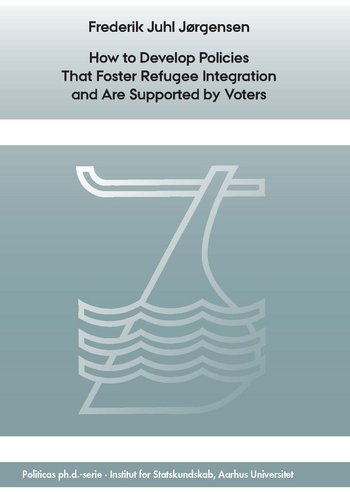Frederik Juhl Jørgensen
How to Develop Policies that Foster Refugee Integration and Are Supported by Voters

Is it possible to develop policies that foster integration and are supported by voters? I provide empirical answers to this question by focusing on Denmark, whose national registers offer a unique opportunity to link important policy reforms to immigrant integration outcomes. The findings clearly demonstrate that current Danish policies are too strict if the aim is to maximize integration. For policy design, this means that policy makers should reassess current policies. In particular, the findings suggest that policy makers should provide refugees with equal benefits to prevent negative effects from economic deprivation and remove restrictions on relocation to leverage synergy effects between individual characteristics and place characteristics. These findings align with recent work that shows that less restrictive policies—e.g., fewer restrictions on citizenship acquisition, faster processing of asylum applications, protection of unauthorized immigrants, and fewer restrictions on asylum seekers’ employment opportunities—are catalysts of integration. Despite this evidence, policy makers continuously tighten integration policies and decrease refugees’ chances of successful integration. My results demonstrate that a plausible reason for the mismatch between the supply of policies and the aim of maximizing integration is that voters demand strict policies. A potential way to escape these electoral constraints is if it is possible to promote citizens’ policy preferences by providing information about refugees’ actual integration. However, the dissertation shows that citizens distort the relationship between corrective information and their policy views by interpreting correct information in a belief-consistent manner.
![]() Ophavsretten tilhører Politica. Materialet må ikke bruges eller distribueres i kommercielt øjemed.
Ophavsretten tilhører Politica. Materialet må ikke bruges eller distribueres i kommercielt øjemed.